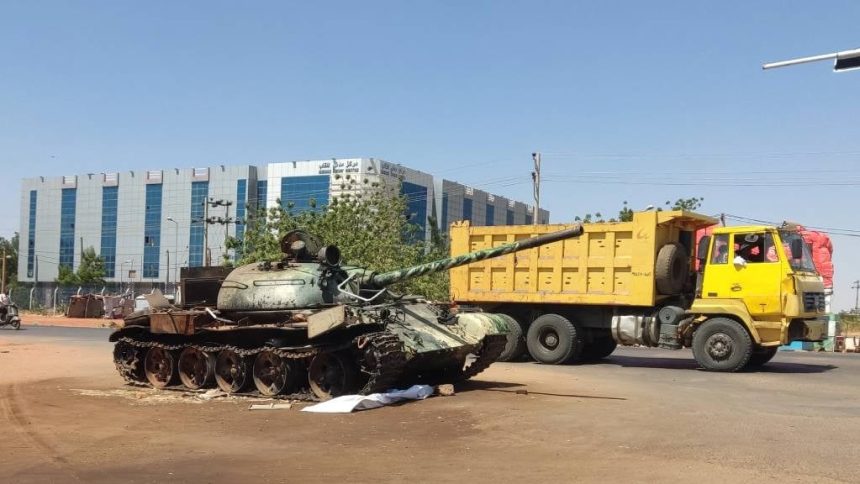Doctors Without Borders (MSF) announced on Friday that it is suspending all operations at Sudan’s largest displacement camp in North Darfur, including its field hospital, due to escalating violence in the region. The camp, which houses over half a million displaced people, has been severely impacted by fighting between the Sudanese army and the paramilitary Rapid Support Forces (RSF).
MSF expressed deep concern over the growing humanitarian crisis but stated that it had no choice but to halt its activities in the camp, which include providing critical healthcare. The conflict in the region intensified on February 11, when the RSF stormed the Zamzam camp, triggering further violence. Both sides have been accused of shelling health facilities and residential areas, as well as using hunger as a weapon of war.
MSF’s medical facility in Zamzam had already treated 139 patients, most of whom were wounded by shrapnel or gunfire, in the first three weeks of February alone. However, the situation has worsened, with 11 patients, including five children, dying in the facility due to the inability to provide adequate care or transfer them to a hospital in the capital, Khartoum. The MSF clinic, initially set up to tackle malnutrition, lacks the capacity to perform trauma surgeries, leaving many in critical need without proper medical attention.
Yahya Kalilah, MSF’s head of mission in Sudan, described the decision to suspend operations as “heartbreaking,” but emphasized that the security conditions on the ground made it impossible to continue providing aid. He also noted that attempts to transport patients to El-Fasher, the nearest hospital equipped for trauma care, had become increasingly perilous. In January and December, two MSF ambulances were shot at while transporting patients, further highlighting the dangers posed by the ongoing conflict.
The suspension of MSF’s operations follows a grim assessment by Christopher Lockyear, MSF’s Secretary-General, who described the situation in Zamzam as a “perfect storm” of brutal wartime conditions. “The people in Zamzam have fled, been displaced, besieged, starved, bombed, and they are trapped,” Lockyear stated.
The conflict in Sudan, which erupted in April 2023, has triggered the world’s largest displacement and hunger crisis, with millions of people unable to leave the war-torn regions due to lack of resources. Famine was declared in Zamzam in August 2023, and it has since spread to other camps near El-Fasher. A UN-backed assessment predicts that famine will expand to five more areas by May.
With ongoing violence and deteriorating living conditions, MSF’s decision underscores the dire challenges faced by humanitarian organizations attempting to provide aid in Sudan.





